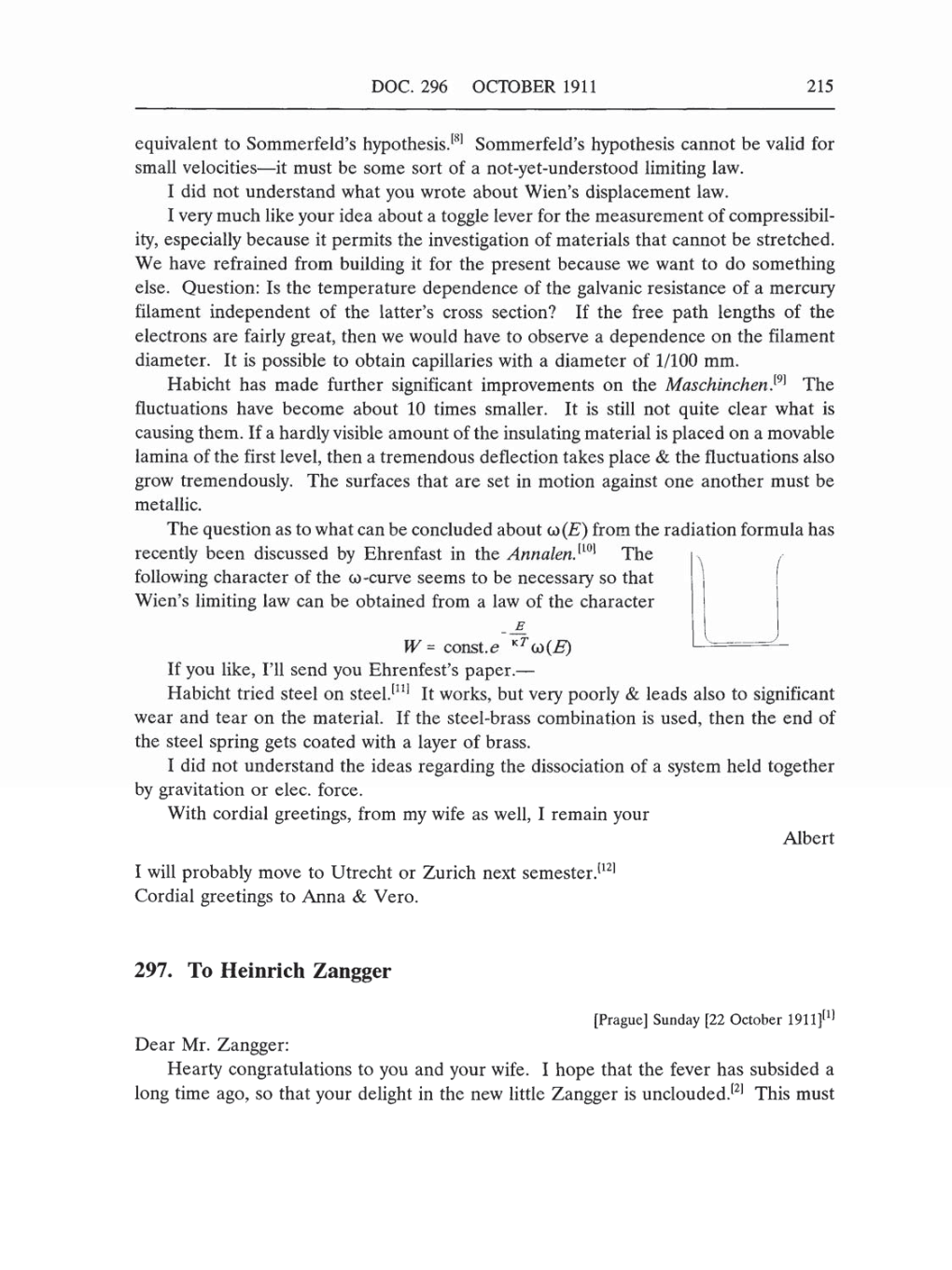DOC. 296
OCTOBER
1911
215
equivalent
to
Sommerfeld's
hypothesis.[8]
Sommerfeldes
hypothesis
cannot
be valid for
small
velocities-it
must be
some
sort
of
a
not-yet-understood
limiting
law.
I
did
not
understand what
you
wrote
about Wien's
displacement
law.
I
very
much
like
your
idea about
a toggle
lever for
the
measurement
of
compressibil-
ity,
especially
because
it
permits
the
investigation
of materials that
cannot be
stretched.
We have
refrained
from
building
it for
the
present
because
we
want to
do
something
else. Question: Is
the
temperature
dependence
of the
galvanic
resistance of
a
mercury
filament
independent
of the latter's
cross
section?
If the free
path lengths
of the
electrons
are fairly
great,
then
we
would have
to
observe
a
dependence
on
the filament
diameter. It
is
possible
to
obtain
capillaries
with
a
diameter of
1/100
mm.
Habicht
has
made further
significant improvements
on
the
Maschinchen.[9]
The
fluctuations
have become about
10
times smaller.
It
is
still not
quite
clear what
is
causing
them. If
a
hardly
visible
amount
of
the
insulating
material
is
placed
on a
movable
lamina of
the
first
level,
then
a
tremendous deflection takes
place
&
the fluctuations
also
grow tremendously.
The
surfaces
that
are
set in
motion
against one
another
must
be
metallic.
The
question
as
to
what
can
be
concluded about
w(E)
from
the radiation formula
has
recently
been
discussed
by
Ehrenfast
in
the
Annalen.[10]
The
.
r
following
character of the
w-curve seems
to
be
necessary so
that
*
I
Wien's
limiting
law
can
be
obtained
from
a
law
of the character
-
E
W
=
const.e
kT(jd(E)
*
~~
-
If
you like,
I'll send
you
Ehrenfest's
paper.-
Habicht tried steel
on
steel.[11]
It
works,
but
very
poorly
&
leads
also to
significant
wear
and
tear
on
the material. If
the
steel-brass combination
is used,
then the end of
the steel
spring
gets
coated
with
a
layer
of
brass.
I
did
not
understand
the
ideas
regarding
the dissociation
of
a system
held
together
by
gravitation
or
elec. force.
With
cordial
greetings,
from
my
wife
as
well,
I remain
your
Albert
I
will
probably
move
to
Utrecht
or
Zurich
next semester.[12]
Cordial
greetings to
Anna
&
Vero.
297.
To
Heinrich
Zangger
[Prague] Sunday [22
October
1911][1]
Dear
Mr.
Zangger:
Hearty congratulations to
you
and
your
wife.
I
hope
that the
fever
has subsided
a
long
time
ago,
so
that
your delight
in the
new
little
Zangger is
unclouded.[2] This must
